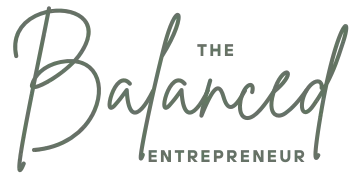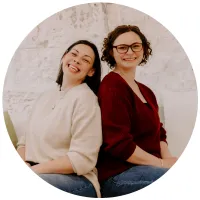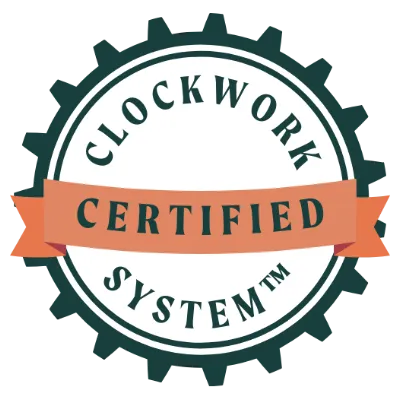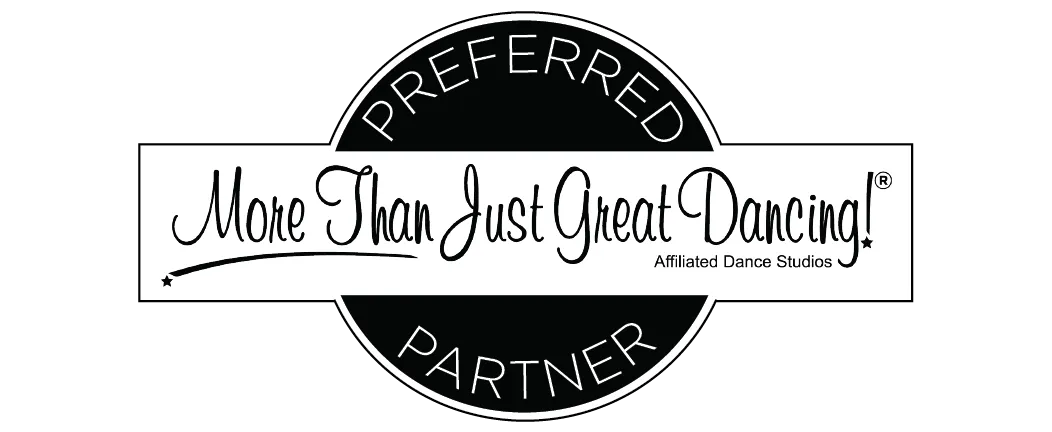BLOG
Operational efficiency is the name of our game and the main topic of these blog posts
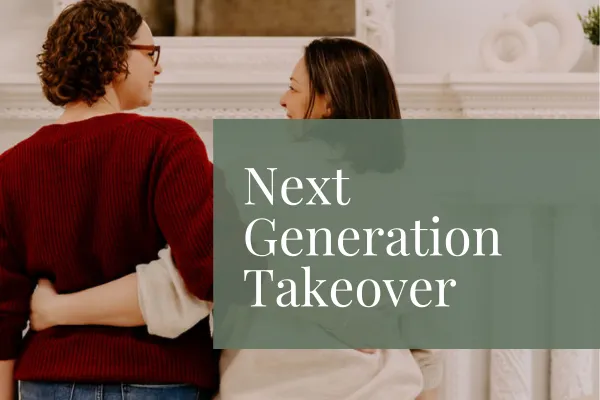
Next generation take over - Working with family
Lia
Welcome back to the Distress Your Studio Podcast. This week, we are going to talk about working with family in multi-generational dance studios.
So this is close to Briar and I because we are third generation in our studio. Our grandmother and our mother started the studios when we were kids and we are now shareholders in the business and on the leadership team and in the day-to-day operations of it.
And Briar, what are some of the challenges and the frustrations that have come up with being the next generation coming into those roles in the studio?
Briar
Yeah, I think there are definitely some positives and negatives with working with family and you know, some of the challenges that we have experienced, and as a family specifically, is being able to know when we are in work mode and when we are in family mode.
I know for myself, I catch myself sometimes chatting about work things at a family barbecue or at Easter, or you know as we're like walking down the beach and trying to have a nice time. On the flip side, I have been frustrated with family members who also do the same thing.
You know we also have had moments where we are working with family and we know everything about each other right so you know working with family members there was a time where one was going through cancer treatments one was going through menopause one was extremely pregnant and nobody could tell me what needed to be done, nobody can answer my questions, you know, I didn't know what I was supposed to be doing and having some Clockworking systems in those moments would have been really, really beneficial.
Lia
Yeah, and I think that's a really good point and why Clockworking can be really valuable in this type of business setup where you're working with a next generation of family or even just a next generation of employees, is that when you've had people in the business for long periods of time, they have this sort of institutional knowledge, right?
They just know things about the business that are not necessarily recorded anywhere and that's just because of the longevity of their role in the business.
And so there have been systems created, things that they do automatically, unconsciously, for the business that keep it going.
And unless we can document these, then it's really challenging for anybody, whether it's a family member or a new employee, to take over. Whether it's taking over because somebody is retiring or moving on to another role or another business or they're just shifting jobs within the company.
Or maybe they're not going anywhere, but they want to be able to, like we were talking about last week, take a vacation or make sure there is that redundancy built-in so should they need to step out of the business for some reason, they can do so without worry.
So it can be really challenging when you're working with multi-generational businesses where people have been working in them for so long and so much of what they do lives in their head and not in any sort of documented process.
So like Briar is saying, there's times when you're kind of floundering going, I don't know what to do and nobody here can tell me because of multiple reasons, maybe it's because of all those things that Briar said or a different reason of maybe those people aren't there, right?
Particularly with family businesses, if there's a family emergency, multiple people on the team are affected, right? So I also have a story of coming in and working for our business in the first year that I was there full time and our mother and our aunt had to step away for an extended period as our grandmother was going through a large illness which ultimately led to her passing.
I didn't know what to do and I didn't know what I was supposed to be doing to keep the business running and keep the wheels turning and I certainly didn't want to ask them and ask them to come back in and help me because I knew what they were going through. And I was also going through it because she was my grandmother and a very important person in my life but I had to put my grief aside and keep showing up so that they could be outside of the business. So, it's really almost extra important for family businesses to get these things documented.
Our systems documented and our process is written down and the clockwork process implemented into your business because you want to make sure that whether it's somebody coming in to take over a new role or whether it's that bulletproofing piece of if a family emergency happens, it's going to affect multiple people or whatever it is.
Getting things out of people's heads and into some sort of written process, whether it be something like Asana or a Monday or a Google spreadsheet or a binder, whatever works for you, we just need to make sure that that information is easily shared and easily passed on and not just living inside of people's brains.
Briar
Yeah, absolutely. I think all of that is so incredibly valuable, And I think that there's also a lot of benefits and positives to having a next generation stepping into a long-standing business.
So let's look at some of those positive things now. So as we are stepping into the roles that we are in our studio, one of the benefits that I see is that we are preserving the business's why.
We spoke about the why and the Big B.A.N.G. of our businesses a few weeks ago and being able to come into our business is allowing us to keep the original why of the business alive for a whole another generation.
Hopefully, now, we are going into our 38th season at our studio and hopefully we will be able to continue on for another 38 years and continuing that why in our community. So I feel like that is, you know, a really big plus to having us step into that, you know, also adding new technology and fresh perspectives and new ideas to the business may allow it to grow and thrive for another 38 years.
Lia
Yeah, for sure. And I think, when you were talking about preserving that legacy, speaking of our grandmother, really, you know, kind of made me tear up a little bit because I think we we have grown up with that why not just in the business, but in our day to day lives with our grandmother and our mother and the way that we were raised as children.
And you know, we have a lot of friends that grew up with us in the dance studio that also got to grow up with that why. Because they were in the dance studio and that. I got to grow up with these two wonderful, amazing women.
And now we get to share that with, like you said, another generation, even though our grandmother is no longer with us.
We still get to share her vision for working with children and her approach to working with children. And that's really amazing and really kind of cool to see.
And I think a lot of dance studios have this type of story. Studios that have been in the business or in the family for many years or many generations.
And in terms of adding that technology and that new perspective, what I think is really cool about the clockwork system, to use that word “cool” again, is that once we can get the systems out of people's heads and documented, then we can also see where we can make them better.
You know, just because we have been doing something a certain way for 38 years doesn't mean it's the best way to continue to do it.
And it doesn't mean it was the wrong way for 38 years. It just means that there might be a shift that we can make that can make it more efficient and can make it run a little bit smoother for the world that we're currently living in.
And if we can make it more efficient, then we can free up some more time to do other work that could be more valuable and more beneficial for our business, right?
So it's really interesting to be able to get some of those processes out of people's heads and onto the paper so that we can take a look at them and go, great, can we come up with some fresh ideas to not just change for changes sake, but change for making up more time in our lives, freedom, more flexibility, less stress, and just an overall more efficient business and a more effective business.
Briar
Definitely. I mean, the economy and our industry has definitely gone through changes over the last 38 years and yes there are going to be a lot of processes that we have that are still relevant and really beneficial for us to maintain and keep up and then there are those ones that can be tweaked and adjusted to stay relevant as we move forward.
And you know just quickly going back to that legacy piece, because I think our hearts are there and that's why you know part of our why with staying in the family business. We can probably both recite messages that were ingrained in us in the dance studio or in the art studio by our grandmother and mother and those are not just you know sayings or things they came up with, those were their values and beliefs and that has made us who we are today.
And like you said there's a lot of our friends that grew up in the studio too and now we're even seeing those students that were there dancing beside us bringing their children back to our studio and bringing the next generation back to our studio because it made an impact on them and who they are as human beings and they're wanting to do the same for their children, as we are with ours. You know bringing our kids to summer camps and dance classes and art classes at our studio isn't just because we think dancing is great, it's because of the values and beliefs that were ingrained in us as children and I agree, Lia, if we can get our systems dialed in, it allows us to be more balanced as human beings and as entrepreneurs and that is why we feel that Clockworking is so important for studio owners.
Lia
Yeah, and to bring this back to your first comment, Briar, about blurring the lines between family time and work time, right?
Working on creating those efficiencies and getting those systems captured and being able to find more balance in your work in life or between your work and life can allow you to let those family times just be family time.
And then work doesn't have to spill over as much into that family time if you can find that balance and find those processes at work where work can stay at work.
I think, you know, as entrepreneurs, it is often the case that when you start businesses, you have to be working on them all the time and thinking about them all the time and that even if you're not working, you're thinking about work and even if you're not at work, you're working. And so, Clockwork really allows us to create that bit of separation by, you know, really looking at those processes and looking at how we're spending our time.
And then one more thing that came up when I was listening to you talk, Briar, is one of the other pieces that I think is challenging with working with family and coming in as the next generation of the family is feeling, or trying to find your place and feeling empowered to find that place.
And some areas might feel easier than other areas, right? So a lot of what we talk about in the Clockwork process is how to delegate so that the person you're delegating to is feeling empowered to really own that role or own that task.
And I think that can be a really important part when you're working with family to make sure that you're keeping those family relationships healthy, and that someone doesn't feel like they're constantly being micromanaged, or what have you, but they really do feel empowered and supported by their team, which is potentially family when you're talking about a family business.
That they are feeling empowered rather than feeling like they're not doing a good job or they're not living up to the tasks at hand.
So I think that can be another really added bonus to the Clockwork process.
Briar
Yeah, I mean, we all just want to be seen, heard, and valued, whether you are a studio owner or the next generation coming in and joining this company.
So I love that, Lia, using those Clockworking systems to ensure that that is happening is so very important.
Lia
For sure. All right. Well, we will talk to you next week. Please reach out to us if you have any questions about family dance studio ownership or multi-generation businesses. Briar and I are living it and breathing it, so please let us know.
We're happy to help.
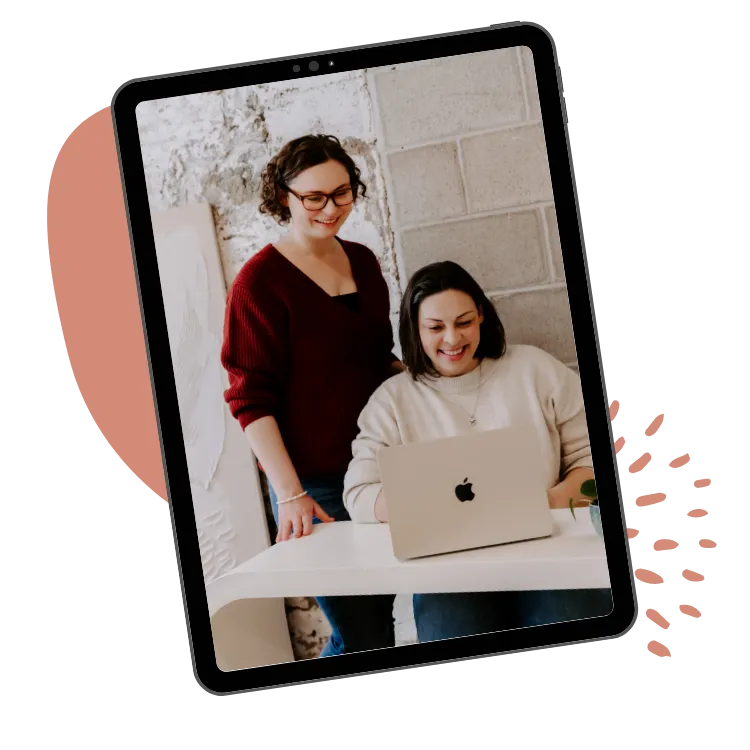
FREE DOWNLOAD
Want a month worth of your time back? Join our 3 day challenge!
In our 3 day challenge we will guide you through the steps to free up just 3 hours a week. Add that up over a year of work, and you will have made back almost a full month of 40 hour work weeks!! What would you do with a month worth of free time?
